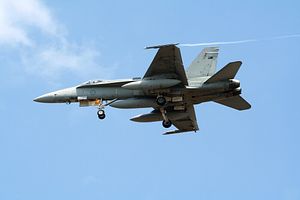Australian airstrikes against Islamic State forces in Iraq are likely to begin within days. Prime Minister Tony Abbott has announced that Australian refueling and surveillance planes will being flying over Iraq as part of the international coalition today. He says that a “final decision” has yet to be made on a combat role.
Can the government justify the intervention to its own citizens? Several weeks ago, Abbott deployed RAAF combat aircraft and army special forces advisers to the Middle East. The mission appears to have two core aims: (1) Disrupt and degrade ISIS and (2) Provide humanitarian support to civilians. The mission bears the hallmarks of a humanitarian intervention.
While protecting groups suffering human rights violations is a cause most people would support, the intervention violates a fundamental – albeit strict – interpretation of political thought. In international relations theory, the dominant understanding of the nature of the state and the role of government is that the government’s duty is to serve the interests, or to realize the will, of its citizens.
Logically this makes sense: A government must serve its citizens. But it also follows, under this interpretation, that it cannot support actions that benefit a majority of non-citizens. Applied to the ISIS intervention, the government’s decision to commit to a humanitarian intervention in Iraq will mostly support Iraqis – not Australians – and as such this act would seem to be beyond the government’s duty. Instead, the state in this instance is acting as an instrument for external moral progress, which is beyond its role. As a result, the intervention has a problem of internal legitimacy: an inability to morally justify its actions to its citizens.
The Australian government claims that a request for support from the Iraqi government adds legitimacy to the mission. This is partly true. Receiving a request means the intervention satisfies various legal hurdles. For instance, United Nations Security Council (UNSC) approval is not required. It also means that Iraq’s sovereignty is not being violated. However, this does not resolve the fact that the intervention is directly supporting the Iraqi regime and not Australian interests.
Another argument is that the intervention can be internally justified if the majority of Australians support the intervention. A recent news poll (PDF) found 62 percent of Australians supported the government’s decision to provide humanitarian aid and weapons to forces opposing ISIS. However, this argument is poorly conceived. The nature of the state permits majority decisions only for issues affecting the interests of citizens, not of non-citizens.
In addition, international law and norms do not resolve this conundrum. Treaties like the International Covenant on Civil and Political Rights only impose on signatories duties to protect the human rights of their own citizens and merely encourage states to “promote” human rights in other states. Also, Japan’s constitution under Article 9 prohibits the use of its self-defense forces even for humanitarian interventions. Thus, not only do states have no legal obligation, but to create an obligation would require re-evaluating our understanding of the role of government. This is something supporters of the Responsibility to Protect doctrine have advocated with some success. In a recent op-ed piece, Australian shadow Foreign Minister Tanya Plibersek wrote, “Australia has an obligation to act.” The obligation in this sense is moral, which is neither legal nor theoretical.
The only conceivable benefit to Australia is indirect. That is, disrupting and degrading ISIS reduces a significant security threat that, in turn, increases regional stability. This has flow-on effects for global stability more broadly – including for the Asia-Pacific. Also, participating alongside the U.S. could potentially strengthen the U.S.-Australia alliance (assuming that’s a conceivable outcome). However, these benefits are mostly speculative at best.
In all, it may seem intuitively odd that a humanitarian intervention cannot be justified to its own citizens. But this argument follows the most fundamentally accepted principle in international relations: that states by their very nature are inherently self-interested entities which aim to advance their own interests – and not the interests of others. When crafting policies, policymakers might ponder strategic, political and legal considerations. However, theoretical principles should not be neglected in the process.
Heath Pickering is a research assistant in international relations at the Melbourne School of Government – University of Melbourne. You can follow Heath on Twitter @PickHeath.































